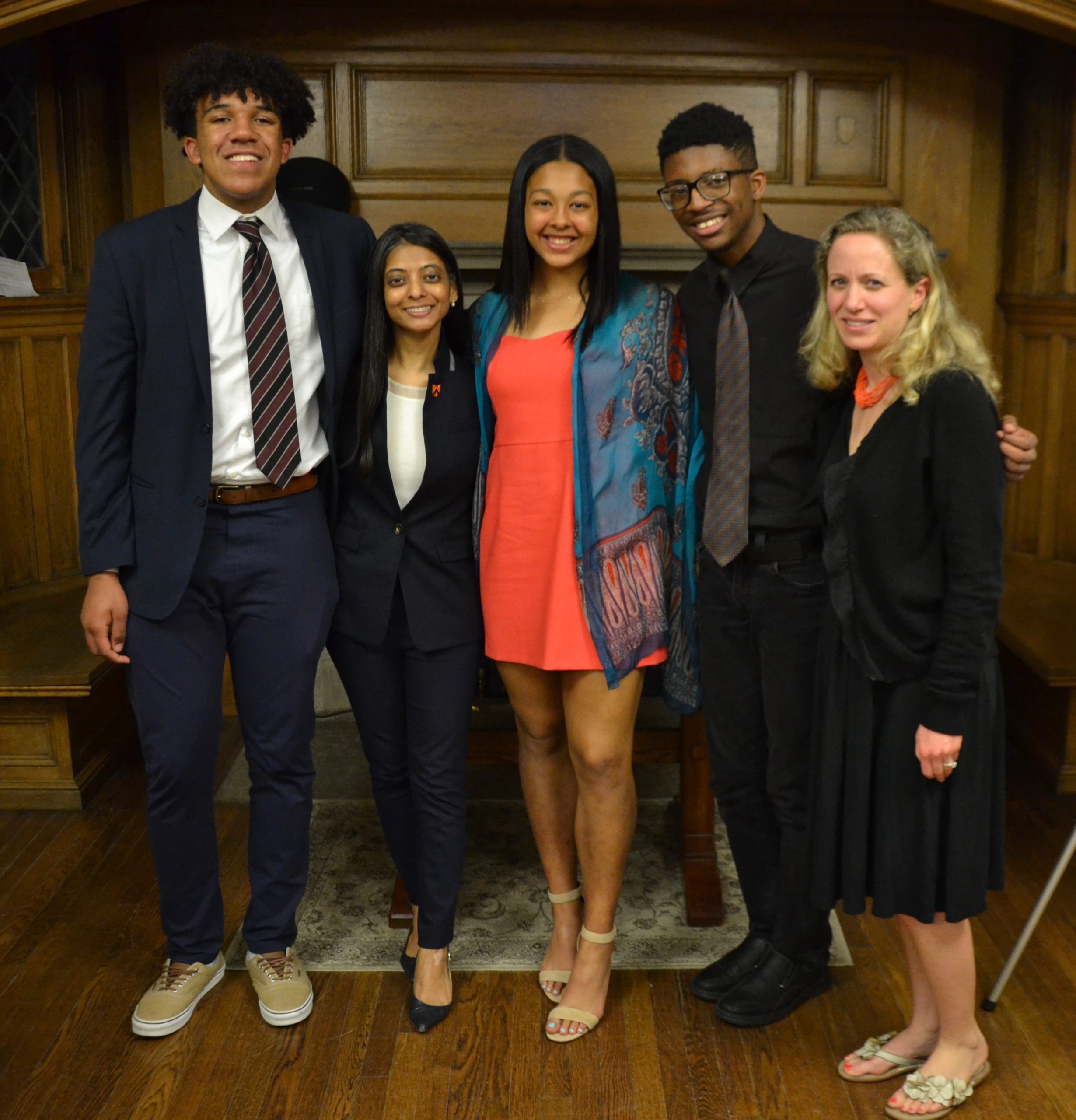Sophomore Elizabeth Metz was dismayed by students at Beachwood High School arguing whether slavery or the Holocaust was worse. Administrators say her student-led forums have improved campus race relations more than faculty and staff have been able to do.
Senior Jalen Brown saw the toxic mix of homophobia and racism in the hallways of the Cleveland School of Science and Medicine. He formed a student cadre called “Specific and General Acceptance” to explore this intersection. One of their goals: fewer suicides.
Senior Kye Harrell led a silent sit-in at Shaker Heights High School, gathering more than 400 protestors on the day of the nationwide Parkland demonstrations. They made visible the discrepancy between high school roadblocks to Black Lives Matter participation and the school’s green-light for the Parkland rally.
And sophomore Karson Baldwin founded a strong, ongoing alliance between the International Newcomers Academy in Cleveland and students from his institution, University School, under the banner “Oné Respé,” a Haitian greeting meaning “honor and respect.”
These four leaders took a bow for their activism, singled out by the Princeton Prize for Race Relations. It rewards anti-racist enterprise rather than the more staid student essay contests.
“At a time when racial hatred threatens to turn into an American export, the winners of the Princeton Prize focus on harmony, respect, and community to advance race relations,” said Sandhya Gupta, who chairs the Cleveland regional competition.
Princeton graduate Henry Von Kohorn founded the prize in 2003 partly out of his disappointment in his alma mater’s record in attracting students of color. Led by Princeton alumni, it grew from a pilot in Boston and Washington D.C. to 27 regional competitions, which culminate in a spring symposium at Princeton for the winners. Karson Baldwin, who represented Cleveland, was one of only two sophomores among the honorees this year.
He quoted Joe Cimperman of Global Cleveland who believes the biggest deficit humanity suffers is the one in kindness and compassion.
Danny Williams, president and CEO of Eliza Bryant Village, gave a witty keynote to honor the quartet in Cleveland. He put up diagrams captioned “This is Your Brain” and “This is Your Brain on Social Justice,” with the portions associated with empathy enlarged.
“Once you have taken that red pill,” he said smiling, “you are going to find it hard to un-ring that bell.” And he quoted Allen Kay: “the best way to predict the future is to invent it.”
But the evening’s award ceremony at the Hawken School’s Gries Center in University Circle belonged to the four honorees. Elizabeth Metz started her “Breaking Barriers Project” at Beachwood High School, in the wake of the Tree of Life shootings and the racist killings of two black people in a western Kentucky Kroger on the same October weekend.
She used the fear of gun violence to unite factions at her school who were adding racist captions about lynching to Instagram and characterizing students with families from the Middle East as terrorists. The first forum attracted 40 students; the second 150.
Jalen Brown characterized his work as “changing lives and saving them.”
“In America, being black is difficult, insanely difficult,” he said. “Black Americans are not allowed to wear their hoods up and walk down the street. And dealing with the homophobia inside a community dealing with racism is more than most can bear.”
Jalen Brown led a moment of silence for Nigel Shelby, a gay Alabama youth who killed himself April 18. “I was where he was at the age of 15.”
Those interested in the Princeton Prize on Race Relations can visit its website here.

Charles Ellenbogen
May 6, 2019
Tremendous. Teens making a difference.